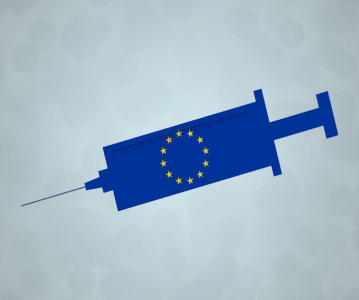Ascendia Pharmaceuticals awarded new patent on its ASD-002 program for acute coronary syndrome

A ready-to-use, stable and soluble, parenteral form of clopidogrel is feasible using the company's nanoemulsion platform technology.
Ascendia Pharmaceuticals has been awarded a new patent. US Patent No. 9,480,680, entitled "Stable Pharmaceutical Composition of Clopidogrel Free Base for Oral and Parenteral Delivery", describes the application of Ascendia's EmulSol nanotechnology to formulate a stable, ready-to-use, rapid-onset, injectable form of clopidogrel.
Clopidogrel, a popular blood thinner medicine, has never been successfully developed in an injectable dosage form due to its inherent chemical instability and poor solubility. “There is a significant unmet medical need for a parenteral clopidogrel dosage form for the treatment of Acute Coronary Syndrome under life-threatening situations,” said Jingjun “Jim” Huang, CEO of Ascendia. “With our nanoemulsion platform technology, Ascendia has demonstrated that a ready-to-use, stable and soluble, parenteral form of clopidogrel is both technically and commercially feasible.” When a patient presents with a suspected coronary event, a high oral dose of clopidogrel is frequently administered as the only available forms of clopidogrel are tablets - not ideal in an emergency setting. Also, when delivered orally, there is a significant delay in the time required for the medicine to become fully absorbed and effective.
ASD-002 can be administered as a single high-dose injection of clopidogrel, capable of overcoming CYP2C19 resistance in a percutaneous coronary intervention (PCI) setting (which 30% of patients experience). Thus ASD-002 will address the unmet need for rapid platelet inhibition, while reducing bleeding risk, associated with newer P2Y12 agents, and has the potential to expand the $2 billion PCI market in peripheral artery disease. ASD-002 for injection also has the potential to provide an advantage compared with the recently approved IV anti-thrombotic drug cangrelor, as ASD-002 should not have an indication exclusion for patients currently on a P2Y12 inhibitor.
Related News
-
News Patients vs Pharma – who will the Inflation Reduction Act affect the most?
The Inflation Reduction Act brought in by the Biden administration in 2022 aims to give better and more equitable access to healthcare in the USA. However, pharma companies are now concerned about the other potential costs of such legislation. -
News CPHI Podcast Series: What does the changing US Pharma market mean for industry and patients alike?
In this week's episode of the CPHI Podcast Series Lucy Chard, Digital Editor for CPHI Online is joined by James Manser to discuss the political and market changes in the US pharma field. -
News CPHI Barcelona Annual Report illuminates industry trends for 2024
The CPHI Annual Survey comes into it’s 7th year to report on the predicted trends for 2024. Over 250 pharma executives were asked 35 questions, with their answers informing the industry landscape for the next year, spanning all major pharma marke... -
News Which 10 drugs are open to price negotiation with Medicare in the USA?
The Centres for Medicare & Medicaid Services, under the Biden administration in the USA, has released a list of the 10 drugs that will be open to price negotiations as part of the new legislation under the Inflation Reduction Act (IRA). -
News EU Medical Devices Regulation causes unintended disappearances of medical devices for children, doctors state
Doctor groups and associations have appealed to the EU to correct the EU Medical Devices Regulation law that may cause unintended shortages of essential drug and medical devices for children and rare disease patients. -
News 10 Major Drug Approvals So Far in 2023
Last year, 37 novel drugs were approved by the FDA, this was a high number for such a category, and covered many fields including oncology, demonstrating how promising further research is, and how it is only continuing to build. To date, there are alre... -
News Detecting Alzheimer's disease with a simple lateral flow test
A novel rapid diagnostic test for early-stage Alzheimer's disease has been developed using a biomarker binder from Aptamer Group along with technology from Neuro-Bio, the neurodegenerative disease experts. -
News CPHI Podcast Series: outsourcing and manufacturing trends
Listen to the CPHI Podcast Series this June to hear Gil Roth of the PBOA speak with Digital Editor Lucy Chard about the biggest trends and topics to watch in pharma outsourcing and manufacturing at the minute.
Position your company at the heart of the global Pharma industry with a CPHI Online membership
-
Your products and solutions visible to thousands of visitors within the largest Pharma marketplace
-
Generate high-quality, engaged leads for your business, all year round
-
Promote your business as the industry’s thought-leader by hosting your reports, brochures and videos within your profile
-
Your company’s profile boosted at all participating CPHI events
-
An easy-to-use platform with a detailed dashboard showing your leads and performance







